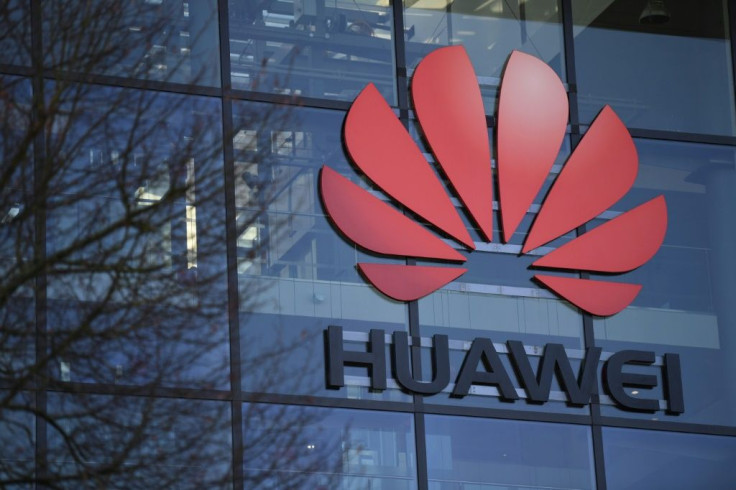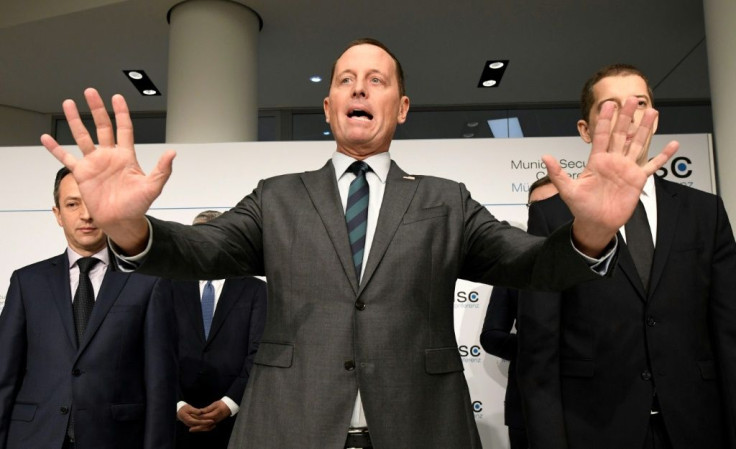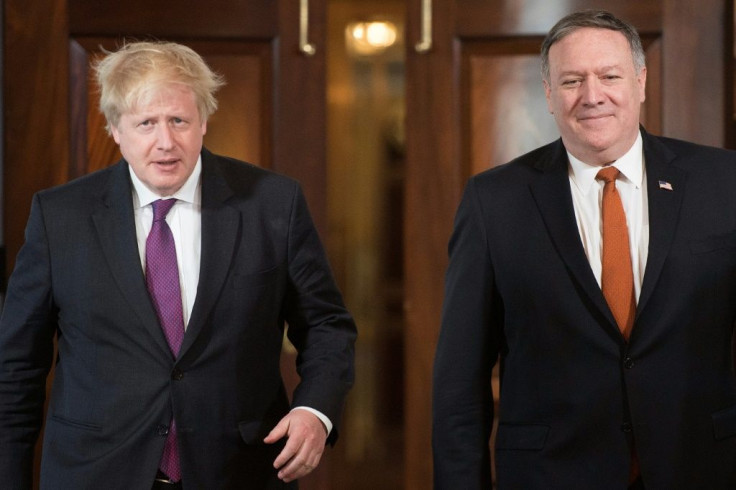Trump Pressure May Be Failing To Stop Huawei Growth In Europe

KEY POINTS
- A steady stream of U.S. officials has failed to persuade the U.K. in taking a stand against Huawei
- Trump administration has said allies' failure to ban Huawei could affect intelligence sharing
- Huawei claims it signed more 5G contracts in January than December
Huawei has so far survived the Trump administration campaign against the company and maybe growing its business in Europe. The company believes that Washington faces a “challenge” in its bid to create a 5G rival, according to media reports.
The technical standards and actual implementation of 5G have taken about 10 years to create and achieving that within a short span would be a challenge for the United States, Paul Scanlan, chief technology officer of Huawei’s networking business, said in an interview with CNBC. “So the U.S. will do what the U.S. does ... that’s a very very long game and that has its own sort of complexity built into (it) and Huawei has been addressing and looking at those things ourselves.”
National security threat
President Donald Trump has not only banned Huawei from doing business with U.S. firms and advised its allies to keep Huawei out but also threatened to blacklist any company that violated the ban. Washington is wary of Huawei’s alleged nexus with the Chinese government and calls it a national security threat following charges of spying and technology theft.
However, Huawei says its customer base in Europe is expanding. The company said it won 91 5G contracts in January, up from 65 in December. Of that, 47 customers are in Europe, according to a BBC report.

When asked if the United States could create an alternative, Scanlan said: “It would be a challenge.” He was reacting to U.S. lawmakers’ calls to create a rival to Huawei.
Scanlan, in a BBC interview, said he was confident his company’s equipment was in the lead, both in sales and in its technical standards. “Somewhere between one and two or more years ahead of the others.”
Push for an alternative
The other major players in 5G equipment and technology are Finland's Nokia and Sweden's Ericsson, apart from South Korean giant Samsung.
The U.S. has been looking at California-based Cisco and European majors Ericsson and Nokia as an alternative to Huawei, which has its headquarters in Shenzhen in China’s Guangdong province.
Republican Senator Marco Rubio and a group of bipartisan lawmakers earlier this year introduced a bill “providing over $1 billion to invest in Western-based alternatives to Chinese equipment providers Huawei and ZTE,” the CNBC report said.

In the United Kingdom, Tobias Ellwood, chair of the House of Commons Defence Select Committee, said the participants of the Five Eyes, an intelligence alliance of Australia, Canada, New Zealand, the U.K., and the U.S, must develop its own Huawei rival.
U.S. lawmakers have also called for the government to back an open-source 5G architecture. This would allow new players to enter the networking equipment game for specific components without competing with Huawei in the entire architecture.
Revolt of closest ally?
British Prime Minister Boris Johnson announced in January the country would allow Huawei a restricted role in telecom expansion. The decision upset Trump.
Robert Strayer, U.S. deputy assistant secretary for cyber and communications, who was yet another official to visit the U.K. to pressure it on the matter, said the Trump administration would continue to put pressure on Johnson. Strayer said he did not think Huawei has a 5G technological lead over rivals and that the government's decision to give the Chinese firm access was final.
“Our understanding is that there might have been some initial decisions made but conversations are continuing,” the BBC quoted him as saying.

President Trump had a telephonic chat earlier this month with Prime Minister Johnson when the president let him know his displeasure over the decision, the Financial Times reported earlier this month.
The Trump administration has warned its allies of the North Atlantic Treaty Organization (NATO) that continued ties with Huawei would make intelligence sharing with them difficult. “If countries adopt untrustworthy vendors in 5G technology, it will jeopardize our ability to share information at the highest levels.”
Meanwhile, acting White House Chief of Staff Mick Mulvaney was in 10 Downing Street on Thursday meeting officials including Dominic Cummings to increase the pressure on Britain, BBC reported. However, a U.K. government spokesperson said the position on the rollout of 5G had not changed since it was outlined in January, although the meeting was described as “constructive” and “lengthy.”
Depth of unhappiness
The U.S. still wanted the U.K. to reconsider and ban Huawei altogether and believed that British officials, including Cabinet Secretary Sir Mark Sedwill, have failed to appreciate the depth of its unhappiness with the decision, a report in The Guardian said.
Mulvaney told an audience of students at the Oxford Union on the evening of the official meeting that there could be “a direct and dramatic impact” on intelligence sharing between the countries, and that the U.S. remained “very much concerned."
The timing of those remarks reportedly irked Downing Street, although it was the latest in a string of high-level White House warnings about Huawei, made over the weekend by Mike Pompeo, the US secretary of state, and Mark Esper, the defense secretary.
© Copyright IBTimes 2024. All rights reserved.





















